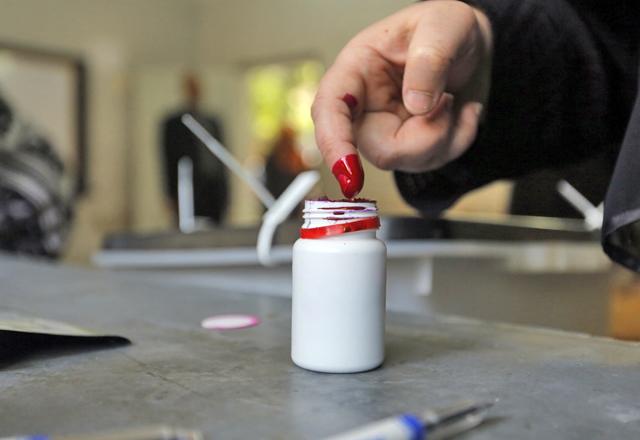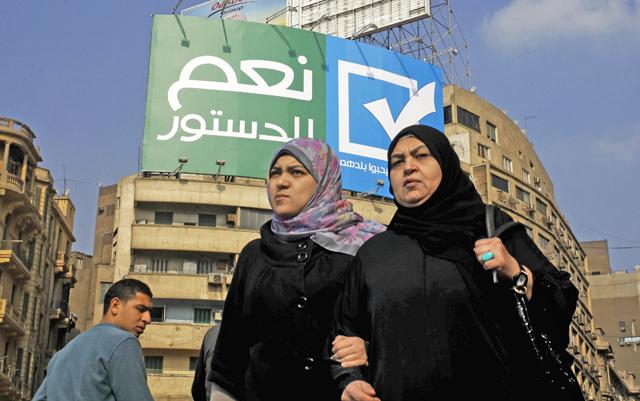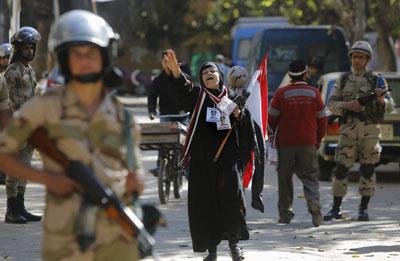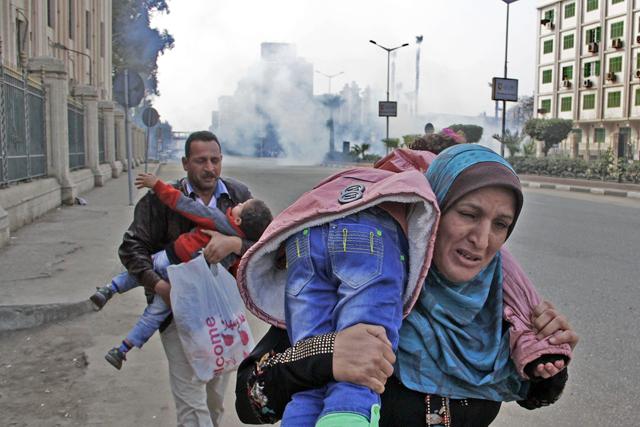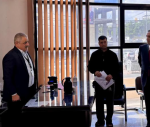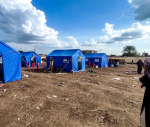CAIRO — Egyptians voted on Tuesday for the first time since the military deposed president Mohamed Morsi on a draft constitution that may set the stage for a presidential bid by army chief General Abdel Fattah Al Sisi.
At least five people were killed in confrontations between Muslim Brotherhood supporters and police, official sources said, highlighting the tensions in the country. A small bomb went off in Cairo, injuring no one.
The Brotherhood, still backing Morsi who is now in jail, has called for a boycott and protests over the draft, which deletes Islamic language written into the basic law approved a year ago when he was still in office. It also strengthens state bodies that defied him: the army, the police and the judiciary.
While a state crackdown on dissent has erased many freedoms won by the 2011 uprising against president Hosni Mubarak, anticipation of more stable government sent the stock market on Tuesday to its highest level since his downfall. The main index exceeded its January 2011 peak.
The referendum is a milestone in the political transition plan the army-backed government has billed as a path back to democracy even as it presses a fierce crackdown on the Muslim Brotherhood, Egypt’s best organised party until last year.
A presidential election could follow as early as April.
Echoing a view widely held in Egypt, a senior European diplomat said Sisi would probably announce his candidacy in the next few days — a prospect that will delight supporters but could stir more conflict with his Islamist opponents.
With little or no sign of a campaign against the draft — one moderately Islamist party says its activists were arrested while campaigning for a no-vote — it is expected to pass easily, backed by many Egyptians who staged mass protests on June 30 against Morsi and the Brotherhood before his removal.
“We are here for two reasons: to eradicate the Brotherhood and take our rights in the constitution,” said Gamal Zeinhom, a 54-year-old voter standing in line at a Cairo polling station.
Others cited a desire to bring stability to Egypt after three years of turmoil.
Failed experiment
Sisi ousted Morsi, Egypt’s first freely elected head of state, last July. His Islamist opponents say he is the mastermind of a coup that kindled the worst internal strife in Egypt’s modern history and revived an oppressive police state.
But after a failed experiment with democracy, many are weary of the upheaval that has gripped this nation of 85 million and shattered its economy. They see Sisi, 59, as someone who can stabilise and protect Egypt from what local media depict as foreign and domestic conspiracies to divide the nation.
Sisi inspected a polling station after voting began, dressed in desert coloured fatigues and wearing his trademark dark sunglasses. The two-day vote ends on Wednesday.
A Sisi presidency would mark a return to the days when the post was controlled by army men — a pattern broken by Morsi’s one year in office.
Brotherhood supporters staged protests in at least four cities. Police arrested 65 Brotherhood supporters who were trying to obstruct voting, security officials said.
The bloodiest clashes were in Sohag, south of Cairo, where conflicting accounts of what happened emerged.
Local officials, speaking on condition of anonymity, said four Brotherhood supporters were killed and more than 20 wounded, in addition to three policemen.
But the interior ministry said Brotherhood supporters had killed four people and wounded nine more, including a police officer, when they opened fire on passersby to stop them reaching polling stations, the state news agency reported.
The International Commission of Jurists (ICJ), a Geneva-based group that works to uphold the rule of law, described the draft constitution as highly flawed.
“The referendum campaign has taken place within a context of fear, intimidation and repression, calling into question the fairness of the entire process,” it said in a statement.
The government has recently escalated its crackdown on the Brotherhood, declaring it a “terrorist organisation” on December 25. Al Qaeda-inspired militants have stepped up attacks on security forces since Morsi’s ouster.
While the government has linked the attacks to the Brotherhood, the group has repeatedly said it is a non-violent movement committed to peaceful resistance to the state.
But the security clampdown — hundreds of Islamists have been killed and thousands arrested — has taken the steam out of protests while fuelling anger among young Islamists. Morsi and other Brotherhood leaders have been arrested and are on trial.
Underlining how the political picture has changed since Morsi’s downfall, Mubarak asked for permission to vote in this referendum, his lawyer Fareed El Deeb said. It was not immediately clear whether Mubarak — who faces retrial for his role in the killing of protesters in 2011 — would get to vote.
While Western states have criticised the crackdown and called for inclusive politics, they have put little pressure on Cairo. Egypt, which controls the Suez Canal, has been a cornerstone of US policy in the Middle East since the 1970s, when it became the first Arab state to make peace with Israel.
The government has been supported by Gulf Arab states hostile to the Brotherhood. They jumped to Egypt’s rescue after Morsi’s overthrow, offering billions of dollars in aid.

